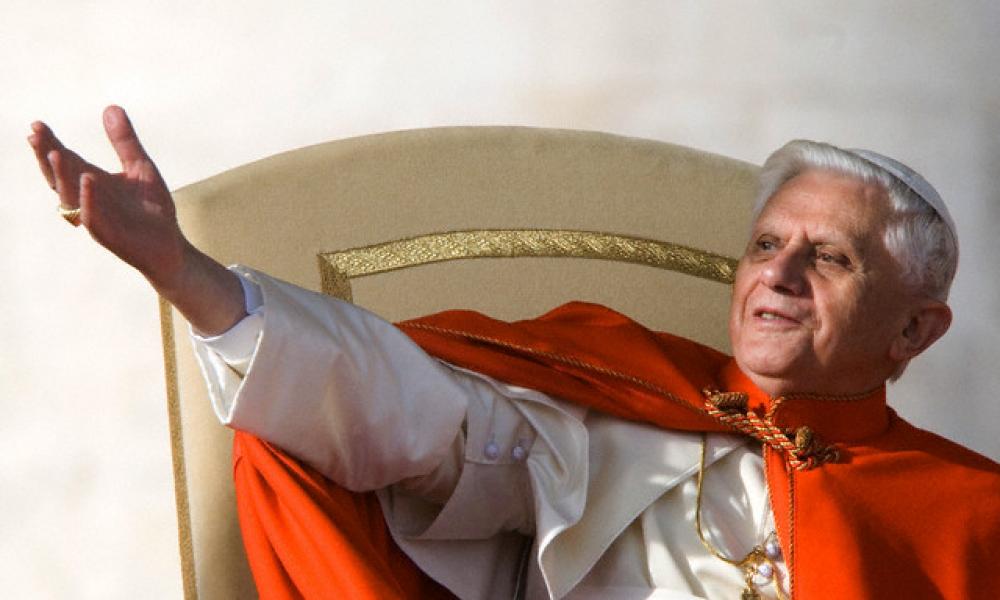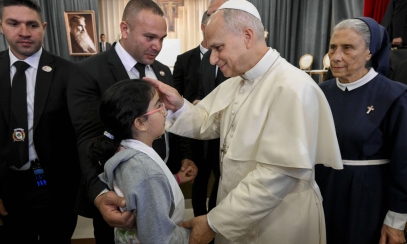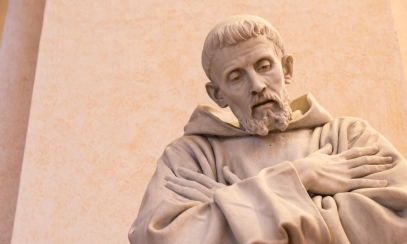My Memories of a Great Pope
January 4, 2023 | Like many, my initial image of Cardinal Joseph Ratzinger was shaped by how he was presented in the media, the Pope’s Rottweiler.
January 4, 2023 | Like many, my initial image of Cardinal Joseph Ratzinger was shaped by how he was presented in the media, the Pope’s Rottweiler.
However, as a theology student I encountered Ratzinger's writings and came to know him differently. Ratzinger was a theologian who participated in the Second Vatican Council and he seemed to understand the Conciliar teaching better than most. His articles and books manifested a clarity of thought, a humility of judgment, and generosity towards those who might disagree with him. Ratzinger wrote with the imagery of a homilist and the discipline of a master lecturer.
In 1984, Cardinal Ratzinger came as a guest speaker to the Pontifical North America College, where I was a student. Having immediately dismissed the idea of giving a lecture, the Cardinal instead invited questions from the students. For over an hour, in perfect —although accented —English, he gently and with kindness spoke with us about the mysteries of Christ and current issues in the Church. Puffed-up and with the arrogance of youthful rebellion, some of my schoolmates tried to show him up with difficult questions or repeat allegations made by Ratzinger's detractors both inside and outside the Church. Without affectation, he nodded his understanding and spoke simply to each question asked. Never once did he look down his nose at a questioner or imply that the question was impertinent, even if it was.
After that, once-in-a-while I would recognize Cardinal Ratzinger in St. Peter’s Square. In his simple black cassock and his beret-clad head of shocking white hair, he would make his way to and from his lunchtime and siesta. If he noticed us, the Cardinal would greet us with a pleasant smile and politely nod, as if to say good afternoon.
During my years in Rome (1983-1987), Cardinal Ratzinger was at the center of every burning debate within the Church. From Liberation Theology to the need for a Catechism, to Catholic-Jewish relations, Ratzinger was the reference point for the Church. The ideas he championed played a vital role in the Papacy of Saint John Paul II. Vatican insiders opined at the time that Ratzinger was the only one in the Curia who was the Pope’s intellectual equal. Thus, they said, he was the only one who could help John Paul II articulate his new way of thinking as he addressed the pressing issues of the day. Cardinal Ratzinger was the Pope's sounding board and he shared the Pope's zeal for implementing the novel teaching of the Second Vatican Council.
Often bishops and other distinguished ecclesiastics would come to the North American College for lunch. One would often hear at table how when visiting the Congregation for the Doctrine of the Faith there was astonishment at how gentle and welcoming the Cardinal was. They would remark that Ratzinger had thoughtfully and without rancor discussed whatever issue was on the agenda. Once I came across an archbishop, who was an officer of the United States Conference of Catholic Bishops, as he and others from the Conference were making regular visits to the Vatican. The archbishop was familiar enough to me that I could jokingly ask him if the Pope’s Rottweiler had taken a bite out of him. No, the archbishop replied, “Cardinal Ratzinger is always a gentleman, even when he disagrees with you.”
Through his published works, I came to see Cardinal Ratzinger as valuable intellectual mentor. When Pope John Paul II died, I thought that Ratzinger was the likely choice as a successor. When one viewed the entire world in 2005, Europe was the place where the Church was most desperate. The cardinals gathered for the Conclave, would surely see Ratzinger as the best hope to rescue Christian Europe, I thought. In addition, I believed that only Ratzinger could walk in the shoes of the Fisherman following John Paul II. There was no one else who could take on the mantle of the great Pope without being crushed by it.
I would see Pope Benedict XVI only once. I was on vacation in Rome with family and by chance attended a New Year's Eve prayer service led by the Pope. After the service, to our delightful surprise, as we exited the Basilica, the Pope-mobile came into the Square. Pope Benedict wanted to view and pray before the Creche, located by the Obelisk at the center of the Square. We stood closer to the Pope than if we had been at an audience. As I gazed at Pope Benedict it occurred to me, he was still the same gentle spirit I had come to know years before, albeit more tired. That February, he would resign the Papacy, his last public act of humble sacrifice for the Church he loved.




